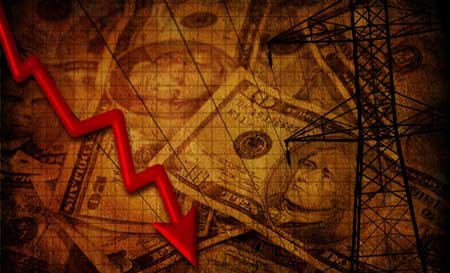
The Next Economic Meltdown
“Economists: Another Financial Crisis on the Way” read a recent ABC News headline. The headline was occasioned by a report from an elite group of economists, financiers and former federal regulators headed by the Nobel Prize winner Joseph Stiglitz. The report warned that the American economy and the financial system are in danger of descending into another crisis. The fault, according to the authors, lies with “our government leaders,” who “have shown little capacity to fix the flaws in our market system.” This lack, they urged, should be remedied by more regulation.
Even though the recommendation may sound superficially reasonable, the advice is not only badly flawed, but it is a prescription for more trouble. To see why, we only need to ask this question: When have our government leaders managed to fix any problem in the market place? The market may not always produce the kind of results we like, but we have a long history of experience to show that attempts to correct it almost invariably produce more bad than good. Even in those cases where politicians’ intent is pure, the interference tends to produce unforeseen consequences that are nearly always detrimental.

In the real world, however, politicians’ regulatory motives are seldom chaste. The financial-reform bill which was passed by the House of Representatives at the end of 2009 is a case in point. Advertised as a measure that would curb excesses on Wall Street, it was the brainchild of Financial Services Committee Chairman Barney Frank. But there is a problem with Frank’s involvement with this legislation. Since becoming the committee’s chairman in 2006, almost half of his campaign contributions have come from the finance, insurance and real estate industries. In other words, Barney Frank is regulating companies and institutions that bankroll his political career. The money they have invested in him has not gone to waste. Frank’s financial-reform bill includes a provision for $4 trillion in emergency funding for Wall Street the next time things come crashing down.
It’s fruitless to expect politicians to come up with the kind of regulation that would cure our economic and financial systems. After all, they cannot even balance the federal budget, which should not be all that difficult. All they need to do is not to spend more than they take in. For some reason, however, our leaders cannot live up to this very simple principle. Every year they run up large deficits which have produced a national debt that the federal government will never be able to honestly discharge.
Failing to address this troubling concern, the report goes on to note:
[T]he country is now immersed in a doomsday cycle wherein banks use borrowed money to take massive risks in an attempt to pay big dividends to shareholders and big bonuses to management — and when the risks go wrong, the banks receive taxpayer bailouts from the government… Risk-taking at banks will soon be larger than ever.
This is correct. But it should be pointed out that this situation is largely due to government action. Banks take undue risks, because they know they will be bailed out if they fail. We should not be indignant at this, since their behavior is completely rational under the circumstances. The system is set up in such a way that even those who would like to play responsibly cannot do so. If they did, their earnings would lag behind those of their more aggressive competitors and the management would be pilloried for “substandard” performance. Thus the only real choice is to run with the herd and take the risks regardless of how excessive they may be.
But notice what is behind this. It is the government’s implicit guarantee of bailouts, which has given rise to a situation economists refer to as “moral hazard.” Moral hazard occurs when a player — in this case a bank — becomes fully or partially insulated from risk and as a result behaves differently that it would have if it were forced to bear the consequences of its actions. Here is a good description of this phenomenon:
Moral hazard arises because an individual or institution does not take the full consequences and responsibilities of its doings, and therefore has a tendency to act less carefully than it alternately would, leaving another party to hold some responsibility for the consequences of those actions.
With its “too big to fail” approach, the government has infused systemic moral hazard throughout the financial system. The party that now ultimately holds responsibility for the consequences of the banks’ undue risk-taking is, of course, the US taxpayer. What we must never forget is that this state of affairs has been brought about by government intervention. The answer is not more regulation restricting banks’ risky behavior, but the removal of bail out guarantees. Once that happens banks will be far more careful about how they manage their risk portfolios, knowing there will be a real price to pay for reckless choices.
The report’s call for “Congress to enact reforms strong enough to prevent another meltdown” is only to ask for more problems down the line. Whether we are faced with a financial, economic or any other crisis, we would do well to remember Ronald Reagan’s famous dictum: “Government is not the solution to our problem; government is the problem.” The present crisis is no exception.
About the author
Born and raised in former communist Czechoslovakia, Mr. Kohlmayer defected from Communist Czechoslovakia at the age of 19 and is now a naturalized American citizen. He is a regular columnist for Frontpagemag.com; his work has also appeared in The Baltimore Sun, The Washington Times, The American Thinker, The Jewish Press, RealClearPolitics, and other publications. He currently resides in London and can be contacted at vasko_kohlmayer@msn.com.
Back To Leeconomics.com
